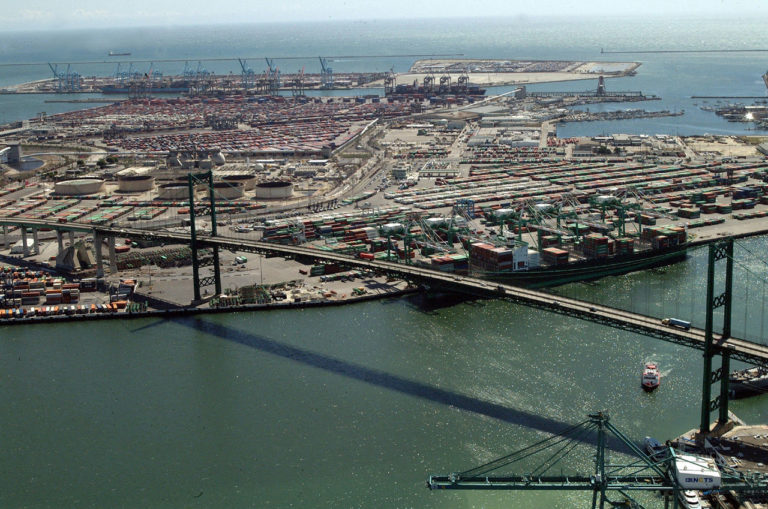
Editor’s note: An earlier version of this story had the incorrect year-to-year cargo traffic percentage change for the Port of Long Beach.
The Port of Los Angeles had its second-busiest month in its 109-year history in August, while neighboring Port of Long Beach saw overall cargo numbers decline year-over-year for the month.
Los Angeles handled 798,932 twenty-foot equivalent units, which is a measurement based on 20-foot-long cargo containers, port officials announced Thursday. That was up 1.5 percent from August 2015, including a less than 1 percent rise in imports and about a 6 percent increase in exports.
Those cargo numbers were only surpassed in October 2006. For the first eight months of 2016, port officials said, year-to-date volumes for the calendar have increased 4.3 percent compared with 2015.
“Strong numbers on both our import and export cargo during the industry’s peak season indicates confidence in our ability to meet supply chain expectations,” Port of Los Angeles Executive Director Gene Seroka said in a statement. “While our industry is currently facing many challenges, the Port of Los Angeles remains committed to handling the nation’s cargo with speed, efficiency and first-class service.”
By comparison, Long Beach saw exports surge 14.8 percent in August compared with the same month in 2015, while imports dropped 10 percent. Year to year, overall cargo traffic was down 8.9 percent.
For the calendar year, cargo volumes are down 2.9 percent at the Port of Long Beach, compared to the first eight months of 2015.
The dual ports, which together handle 40 percent of U.S. imports, haven’t seen the usual surge in traffic that precedes the holiday shopping season, which has been attributed in part to an unusually large inventory held by many retailers.
Cargo carriers have struggled to make ends meet post-recession as shipping demand and prices have fallen while many shipping companies have added vessels to their fleets.
